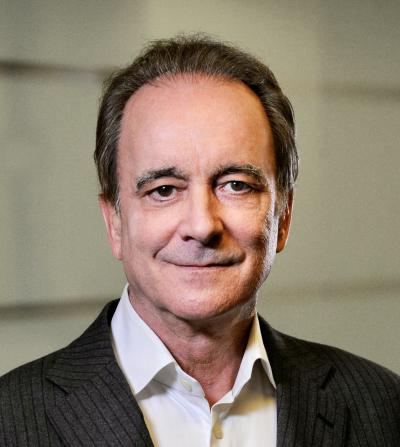Market watchers have been waiting keenly to see whether a cheap China-made cancer drug could disrupt the multibillion-dollar U.S. PD-1 cancer immunotherapy market. But the first player with a chance to follow that path has opted not to.
For the first China-made PD-1 inhibitor to receive FDA approval, Coherus BioSciences “will not engage in heavily discounted pricing,” the company’s CEO Denny Lanfear said during an investor call Friday.
The call followed the FDA’s long-delayed approval for Coherus’ Junshi Biosciences-partnered toripalimab for recurrent or metastatic nasopharyngeal carcinoma (NPC). Coherus plans to officially launch the drug, branded as Loqtorzi, in the first quarter of 2024 and will share the exact price around that time.
The nod came nearly five years after toripalimab became the first domestic anti-PD-1 drug to gain approval in China. The indication was for previously treated melanoma.
Meanwhile, the current FDA go-ahead has made Loqtorzi the first FDA-approved therapy for NPC and the first innovative antibody drug from China to enter the U.S. market.
In China, locally developed PD-1 inhibitors are priced lower than their Western counterparts such as Merck & Co.’s Keytruda and Bristol Myers Squibb’s Opdivo. Junshi launched toripalimab under the brand name Tuoyi in China in 2019 at about a third of Keytruda’s local price, which was half of the Merck drug’s U.S. list price.
After a few rounds of price reductions, Keytruda’s annual cost in a patient assistance program reached about 70,000 yuan (about $9,600), while domestic PD-1s cost as low as about 40,000 yuan under the national reimbursement scheme.
These pricing dynamics in China gave industry watchers hope that the China-made PD-1s would be cheap when they eventually reached the U.S. While six PD-1 inhibitors have been available on the U.S. market before Loqtorzi, they all bear annual list prices above $150,000.
Eli Lilly tried to change that situation last year. In a rare move and apparent last-ditch bid to pressure the FDA before a looming rejection, Lilly last year said it would offer its then Innovent Biologics-partnered Tyvyt at a 40% discount compared to existing PD-1s. The FDA later declined to approve Tyvyt because its phase 3 data were generated only in China against a weak comparator that wasn’t up to date with the treatment landscape in the U.S.
Loqtorzi’s approval contains two indications, one for the drug as a monotherapy in chemo-pretreated NPC patients, and one for its combination with chemotherapy for first-line treatment. The first-line label is based on data from a global phase 3 trial coded JUPITER-02. There, Loqtorzi and chemo reduced the risk of death by 37% compared with chemo alone.

An ultra-low list price strategy simply doesn’t work in the U.S. PD-1 market, Leerink Partners analyst Daina Graybosch, Ph.D., said in an interview with Fierce Pharma in 2021. A lower list price would mean smaller room to offer rebates, a disadvantage in the buy-and-bill drug reimbursement model, she explained.
While a “heavily discounted” price is off the table at Coherus, it remains to be seen where the company will place Loqtorzi among its competitors. As a seller of biosimilars, Coherus has some knowledge about navigating a market of multiple similar products.
NPC disproportionally affects Asian people and is a rare form of head and neck cancer in the U.S. By Coherus’ estimate, about 2,000 NPC patients will be diagnosed and eligible to receive Loqtorzi each year, chief commercial officer Paul Reider said during Friday’s call.
In this niche indication, Coherus expects Loqtorzi could reach $200 million in peak sales, Reider said. That’s a small number compared with Keytruda’s $18.4 billion sales in the first nine months of 2022.
Coherus scooped up Loqtorzi’s rights in the U.S. and Canada by paying Junshi $150 million upfront in 2021. Milestone payments could reach $380 million in total, and Coherus will also pay Junshi a 20% royalty on net sales of Loqtorzi.
The partners went through a regulatory saga to reach Friday’s approval. The FDA first rejected toripalimab in 2022 with a request for a quality process change and onsite inspections that were delayed by COVID-related travel restrictions in China. As travel to China remained a hindrance, the FDA in late 2022 missed its target action date.
When the preapproval inspections did happen, the FDA noted one problem with a clinical trial site that enrolled patients in the two clinical trials supporting toripalimab’s application, Coherus said last month.
With Friday’s approval, Junshi also beat BeiGene to be the first to have a China-made PD-1 approved by the FDA. BeiGene’s tislelizumab is undergoing a similar regulatory delay caused by COVID travel restrictions in China. As the FDA review dragged on, Novartis recently backed out of its PD-1 collaboration with BeiGene.
With more than a dozen products approved, China’s PD-1/L1 market has become an intense marketplace. For the first nine months of 2023, Junshi recorded Tuoyi sales of 668 million yuan ($91 million) across multiple indications.
Both Junshi and Coherus are looking to pair toripalimab with other agents. In his Friday statement, Coherus’ Lanfear highlighted the company's IL-27-targeted casdozokitug and CCR8 inhibitor CHS-114 as potential combination partners.
Coherus has received “significant incoming interest from potential partners” on Loqtorzi, Lanfear said. Coherus is pursuing potential collaborations with T-cell bispecifics and antibody-drug conjugates, with the goal to complete some of those conversations by mid-2024, he added.